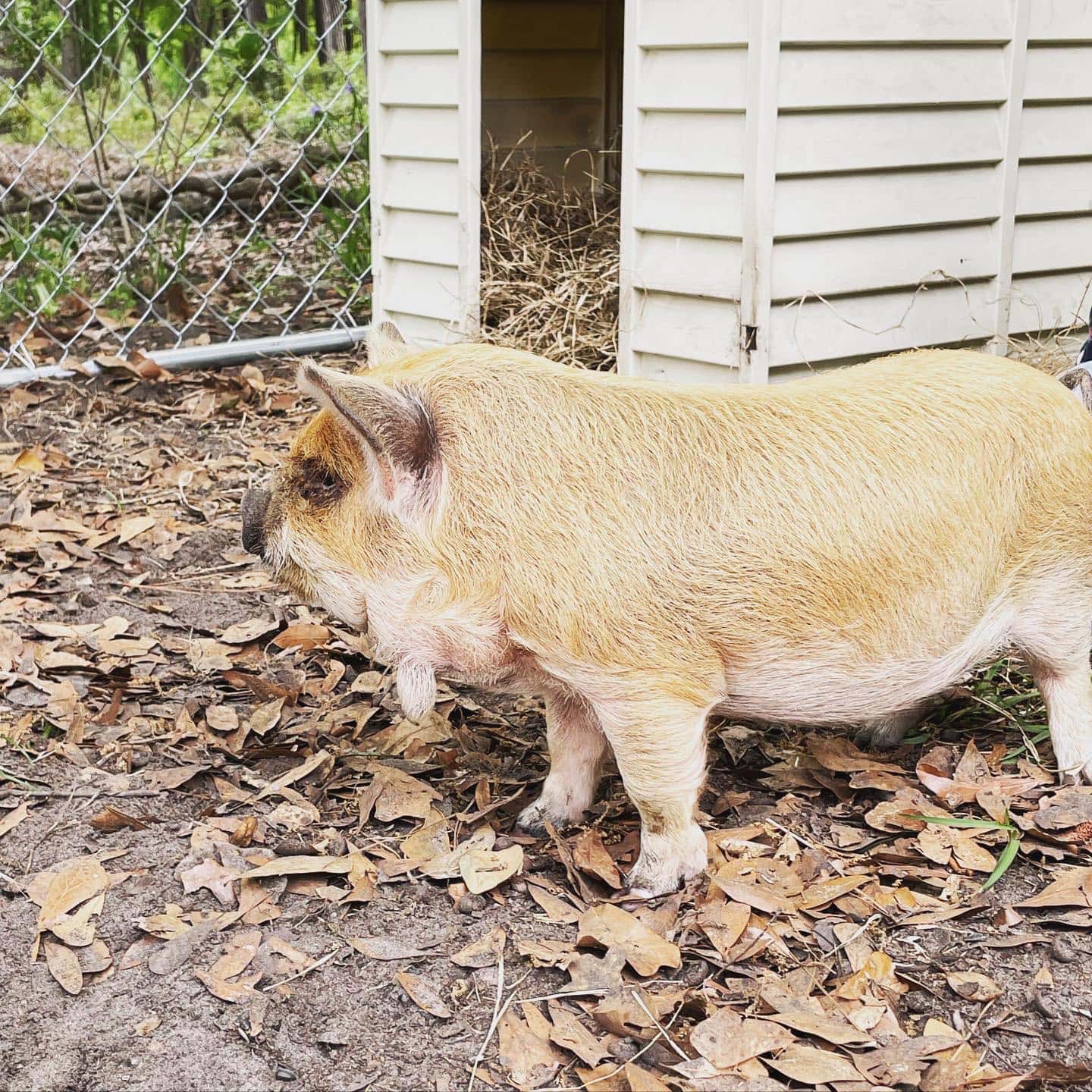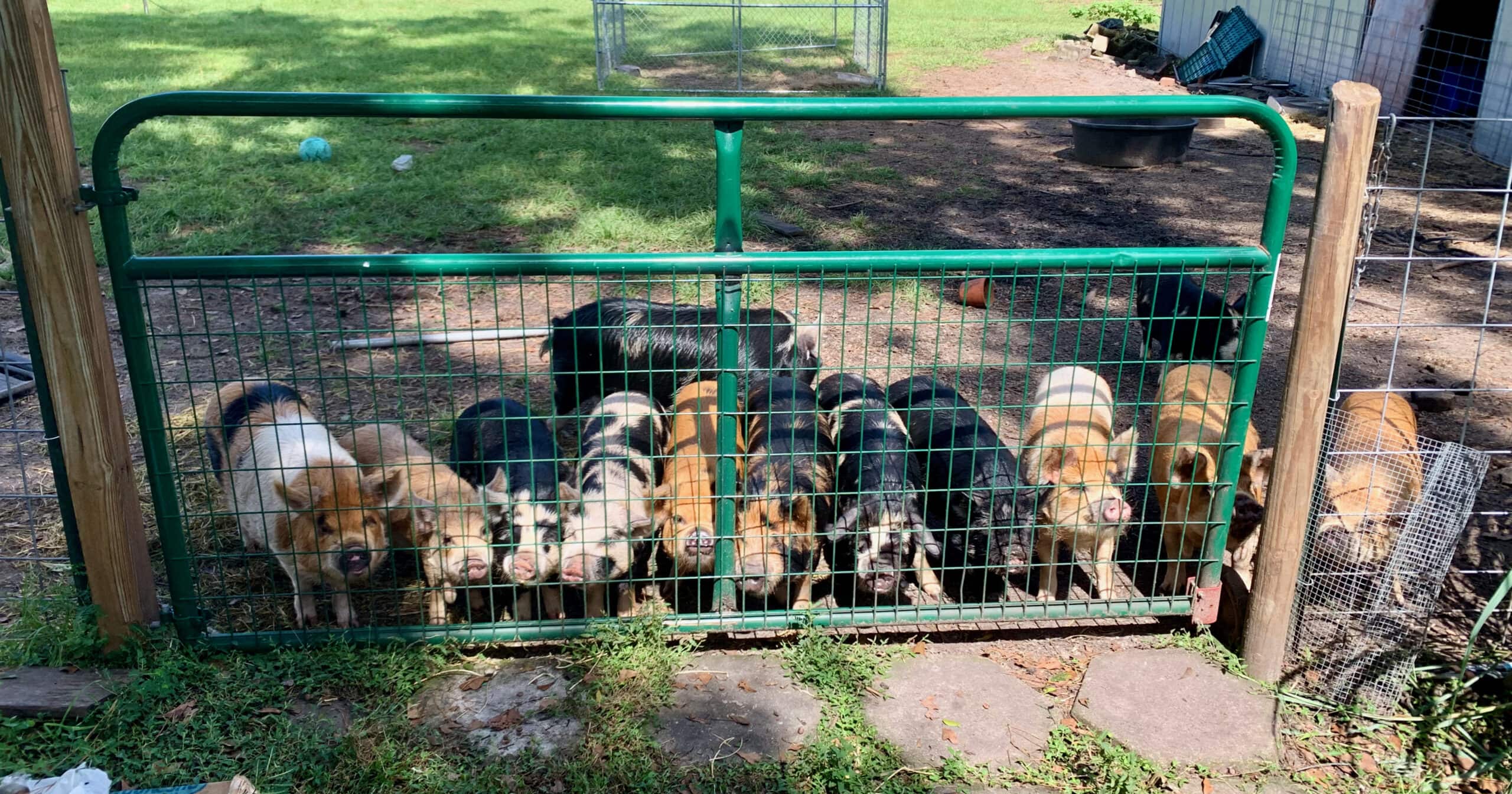Kunekune Vaccine & Worming Schedule
Don’t be caught off guard. Check out this Kunekune Vaccine & Worming Schedule to keep your herd healthy and happy.
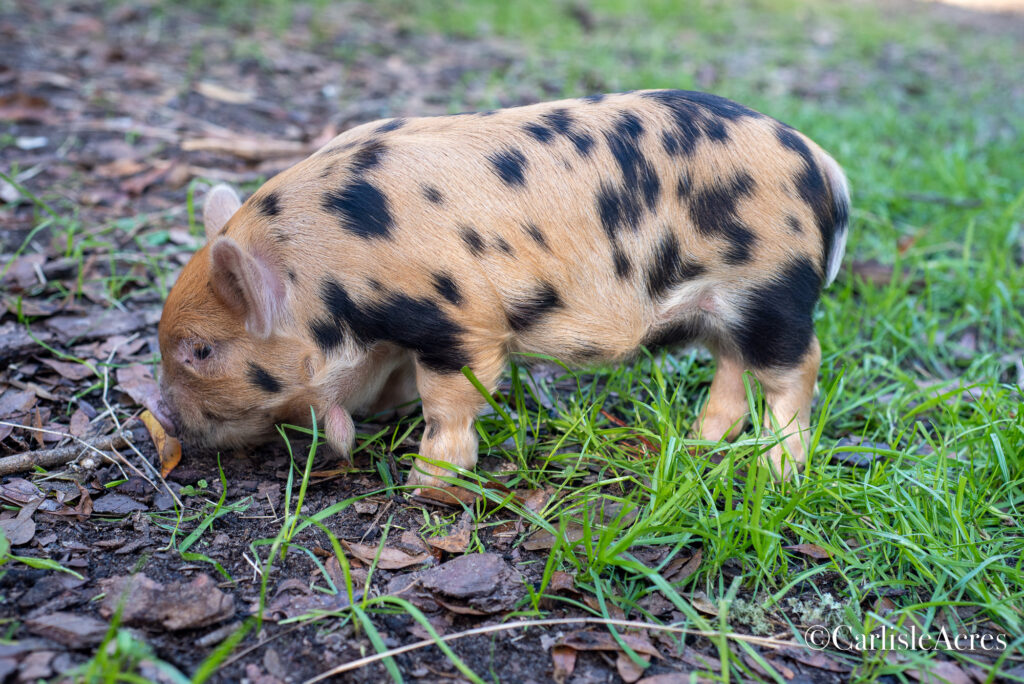
Experience and time are valuable teachers! When we first began our kunekune journey we made the decision to do things as holistically as possible with our kunekunes. I had done all the research and learned all the things abut holistic farming. As time has gone on I believe that there is nothing wrong with raising your herd holistically but it is a lot more work, and much more stressful. I love each and every one of our pigs and want them to be as healthy as possible. We still impart many natural practices but we do worm and vaccinate.
I have seen with my own eyes how these kunekune vaccines and medications improve the overall immunity and health of your herd. When you have a sick pig they can’t tell you what is wrong. By vaccinating some of the doubt is removed as to the bacterial culprit because you know what your animals have been given immunity to already.
Vaccinating your breeders also helps protect your piglets even before they receive their own vaccinations because they gain their mothers immunity. I hate loosing a life to a health issue that could have been easily prevented.
See our current available pigs/piglets here
Wormer
Wormer is at the top of my list because we are in Florida! This beautiful tropical climate homes many types of parasites and so does normal farm life.
I have a recipe for a natural wormer that is great, but we also get skin mites in the hay we use for bedding in the winter. There are a few natural ways to treat them, but all take time to work and can be costly.
We have learned that by using Dectomax twice a year Spring/Fall we don’t have any worm or skin issues. I do also keep ivermectin on hand incase any cases of skin mites inevitably pop up. I prefer dectomax for a few reasons; one is because it does not sting while being given. This makes the kunekunes less jumpy while I am giving them their meds which is a win!
We also use safeguard twice a year. I try to alternate it with the Dectomax so I do it Winter/Summer. This is an oral medication that gets mixed with their food. It treats lungworms, adult and larvae large roundworms, nodular worms, small stomach worms, adult and larvae whipworms, and adult and larvae kidney worms. You can get goat suspension at Tractor Supply or Amazon.
Dectomax schedule
- 6 Weeks & 8 Weeks of age
- Then every 4 – 6 months as needed (Spring/Fall).
- One dose (by weight) followed by another 10-14 days later.
- New pigs on property receive wormer before being introduced
Safeguard Schedule
- At 6-8 weeks of age give according to weight 3 days in a row
- Then once or twice a year after that. We use it every 6 months (Winter/Summer)
Piglet Vaccines
When piglets are born they are very tiny they do have natural immunity from their mother and her milk to an extent for the first couple weeks. This is why it is important to make sure your breeding sows are up to date on their vaccines. This is our kunekune vaccine protocol at Carlisle Acres.
Iron
Piglets lack iron and this gives them a needed boost to aid in growth and health.
At 3 days old we give Iron Dextran shots. We give piglets 1 ml injections intramuscularly.
Rhinishield
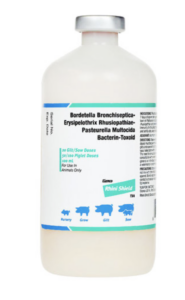
Rhinishield is for use in healthy swine as an aid in the prevention of atrophic rhinitis caused by Bordetella bronchiseptica or the toxin of Pasteurella multocida types A & D, erysipelas and pneumonia caused by Pasteurella multocida Type A
5 & 7 weeks old – 1 ML at 5 weeks, 2 ML at 7 weeks.
Circumvent
Circumvent PCV-M G2 for swine is used in the prevention of viremia, the reduction of virus shedding, the reduction of lymphoid infection caused by porcine circovirus Type 2 (PCV2), and in the reduction of lung lesions due to Mycoplasma hyopneumoniae.
Piglets: Give a single 2 ml dose IM at 6 weeks
Chart
Here is a quick chart of the medications a piglet will receive from birth to year one.
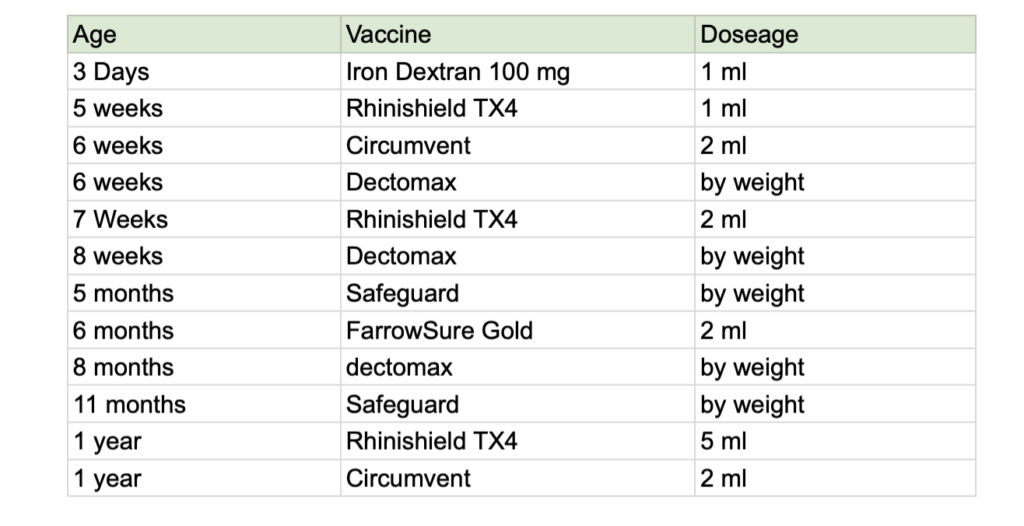
Breeder/Adult Vaccines
There are a couple of vaccines that we give our adult breeder pigs.
FarrowSure Gold Swine Vaccine
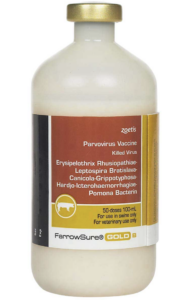
FarrowSure Gold Swine Vaccine Protects swine against 5 strains of Lepto, porcine parvovirus and provides 18 weeks duration of immunity against erysipelas
Healthy swine should receive 2 doses 3-5 weeks apart with the second dose administered 2-4 weeks prior to breeding.
Healthy gilts/sows, however, should receive the second dose as near as possible to 14 days prior to breeding.
Boars get revaccinated every 6 months.
LitterGuard LT-C Swine Vaccine
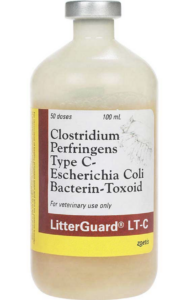
Now this one is not necessary in every herd. We had instances of scours in a few litters and we could not find the cause. We decided better safe than sorry so we began looking to eliminate causes.
Litterguard LT-C Swine Vaccine is for the vaccination of healthy pregnant sows and gilts for passive transfer of maternal antibodies to their pigs. Protects against 4 strains of E. coli: K99, K88, 987P, F41 and the heat-labile toxin. Also protects against Clostridium perfringens Type C, which can cause a highly fatal enteritis in suckling pigs.
Administer 2 ml IM or SQ. Give 2 doses, 3 weeks apart during the last half of pregnancy, with the 2nd dose at least 2 weeks prior to first farrowing.
Give a single 2 ml booster at least 2 weeks prior to each subsequent farrowing.
Boosters
Rhinisheild – Vaccinate gilts and sows with a 5 mL dose at 5 and 2 weeks prior to farrowing.
Circumvent – Yearly boosters of 2ml
Supplies & Syringes
Knowing what needles and syringes do you need can be difficult. You can order from any vet supply website or even amazon. Here is what I use for vaccines. I actually keep various gauge size needles ranging form 25 gauge 1/2 inch (smallest) to 16 gauge 1 1/2 inch (biggest – I use for my big boars.)
Piglets
Adults
- 1 1/2″ 18 gauge needles or 1″ 20 gauge needles (depending on their size)
- 3 cc luer lock syringes
- 5 cc luer lock syringes
Where to Purchase
We purchase all of our kunekune vaccine supplies online. I personally buy my medications from ValleyVet.com when it comes to wormer and vaccines. I purchased my syringes and needles from amazon or Heartland Vet Supply
As always, consult your veterinarian. These are protocols we have adapted with our veterinarian that have worked well for our herd.


